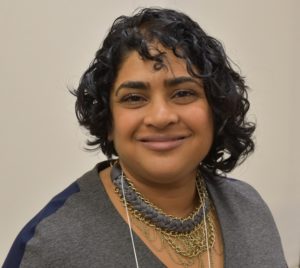‘Something is wrong’ says Chief Human Rights Commissioner

By Kelly Anne Smith
NORTH BAY—Ontario’s Chief Human Rights Commissioner is calling for a change in behaviour from people in and outside of the judicial system towards Indigenous Peoples.
Renu Mandhane says the fact that people are disproportionally targeted means something is wrong.
The Ontario Human Rights Commission (OHRC) administers the Ontario Human Rights Code which sets out the right of individuals to be free from discrimination.
Chief Commissioner Renu Mandhane sounded the alarm on Indigenous prisoner Adam Capay who had been in solitary confinement for four years. Now she wants data on segregation use released annually.
Mandhane says the numbers are missing about who is being stopped and detained by police and who is in Ontario’s prisons.
In a submission to the Ministry of Correctional Services, the commission noted that the North Bay Jail has the highest rate of segregation in the province.
Mandhane recently visited the North Bay Jail during a Take It Local tour. There she questioned authorities on why North Bay has the most prisoners in solitary confinement.
“The data that the ministry provided was of a three month period of a year ago. It showed that their segregation rate was 29.9% which is the highest in the province,” stated Mandhane. “What is difficult to understand is they would say that 29.9% reflects the fact that there is a high turnover. So a lot of people are coming in and out. The short term people might be segregated for a night or two. Their overall segregation is only 7%.”
“The problem is that if you’re vulnerable, if you have a mental health disability, there are no alternatives,” continued Mandhane. “The system is built upon a general population and then there is segregation. If you are somebody who needs protection, these really old jails may have a protective custody unit, but when you are at capacity you can’t use it to only house vulnerable people. The most vulnerable people end up being penalized because of their vulnerability.”
The North Bay Jail was built in 1930. It holds 88 inmates guarded by 50 correctional officers.
Mandhane knows that data collection is a huge issue for Indigenous People.
“They don’t feel comfortable about giving the government information about themselves let alone in self-identifying as Indigenous because of the history of colonialism and what that led to: residential schools, over-policing, and over-incarceration,” noted Mandhane.
The Chief Commissioner has participated in many community circles to hear people’s concerns.
“I went to the Ontario Federation of Indigenous Friendship Centre annual general meeting with all the Indigenous Friendship Centres,” recalled Mandhane. “We are about to embark on a new strategic plan. One of our priorities, based on all of this, is going to be Indigenous Reconciliation.”
“One of things I really heard loud and clear is that the commission is still seen as a colonial entity of government,” noted Mandhane.
Mandhane knows there is a lot of work to do to build relationships.
Human rights complaints are numerous concerning the imprisoned. Mandhane has heard that the complaint system itself is lacking.
“The actual human rights process is not responsive to Indigenous People’s way of resolving disputes,” stated Mandhane. “The idea that you have to file a complaint about a very specific incident; put it in a linear format and then go through an adversarial process isn’t a natural way to solve disputes for many Indigenous People.”
“When you experience so much discrimination in your life—employment, housing, in the child-welfare system, in the criminal justice system—it is almost impossible to isolate one incident and write it out on a piece of paper,” added Mandhane. “We see very few complaints from Indigenous People in the human rights system, even though we know they are amongst the most marginalized and vulnerable.”
Mandhane says a goal of the commission is building a system that is responsive to how Indigenous People view their own rights and how they resolve disputes.
“We have a role to play in how institutions move forward with reconciliation,” stated Mandhane.
In the next five years, Mandhane will move the OHRC to focus efforts on improving the criminal justice system, both in policing and corrections, and to drill into the root causes.
“How is poverty both a product of discrimination and how does it perpetuate discrimination,” noted Mandhane.
Mandhane has heard many stories of the pervasive nature of discrimination toward Indigenous People.
“People are talking about their entire lived experience being affected by discrimination,” added Mandhane. “We all have to change behaviour.”
On December 12, an Ontario judge gave the go-ahead for the country’s first class-action lawsuit on behalf of federal inmates. The suit alleges the rights of tens of thousands of mentally ill inmates were abused when they were subjected to solitary confinement and denied access to medication.
Within days, the Minister of Community Safety and Correctional Services announced $33 million dollars will be spent on hiring 239 staff to increase supports for inmates. The new staff will include correctional officers, mental health nurses, psychologists and social workers.
On December 16, MPP David Orazietti for Sault Ste.Marie resigned as the Minister of Community Safety and Correctional Services, citing family concerns.


